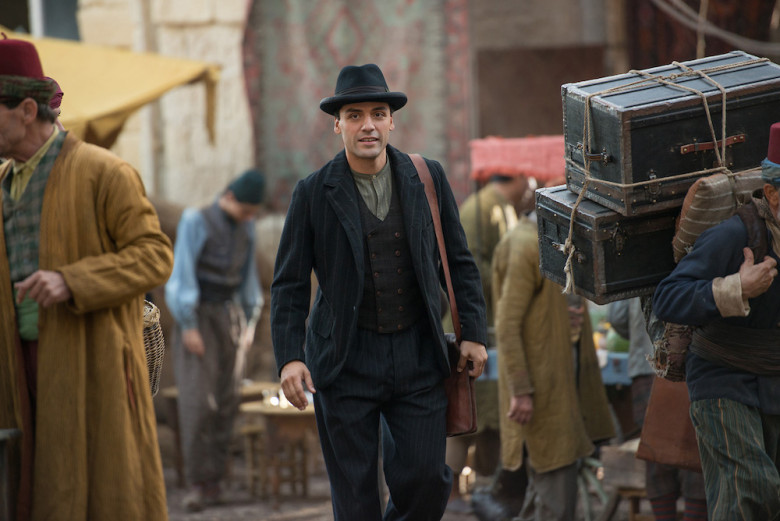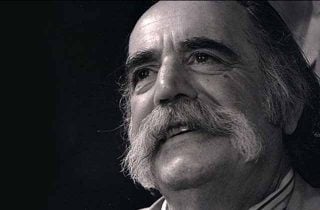Denial isn’t just a river in Egypt – why every American should see “The Promise”: Huffington Post

As private screenings for the upcoming Terry George Armenian Genocide epic The Promise are held on the Hill and elsewhere, battle lines are being drawn between those who embrace historical truth and those who would distort or deny it. The eloquent Mary Wald has written elsewhere in this publication about governments trying to control access to information and pirating the internet. As she eloquently points out this is nothing new, but their reach has recently grown in both scope and intensity, the Huffington Post writes.
Background for an epic love story: or an Anatolian Slaughterhouse, 1915-1923
From 1915 to 1923, under the cover of World War One, the Ottoman Turkish government slaughtered 3 million innocent Christians living within its borders, including 1,5 million Armenians. The Christians were the most educated and advanced group in the multi-ethnic and multi-religious Ottoman Empire and many of today’s wealthy Turks made their fortunes by seizing (read: stealing) the property and money Greeks, Armenians and Assyrians who had been deported and massacred in the most barbaric ways. Armenians were often thrown into caves by the hundreds and doused with sulfur, choked and incinerated in these primitive gas chambers. Others were locked inside churches with their priests and burned alive, drowned en masse in the Euphrates or simply shot and left to die in the open air.
For the ensuing hundred years successive Turkish governments have denied any wrongdoing and claimed that they simply “relocated” the supposedly “treacherous” Armenians—who are actually the native inhabitants of Anatolia, along with Pontic Greeks and Assyrians. For fear of paying reparations and out of misplaced ethnic pride and nationalism, Turkey has spent tens of millions of dollars in a concerted PR effort to avoid calling the killings a “genocide,” even though the person who coined the term in 1943—a Polish Jew named Raphael Lemkin—did so specifically with the Armenians in mind, as he stated in a 1952 CBS interview.
Denial: Just Say It Isn’t So
Turks have gone to dizzying lengths to absolve themselves of guilt for what is referred to by Armenians as the Medz Yeghern or “Great Crime,” including re-writing their history books and imprisoning people who mention the issue in public or in the press. In the 1940s the Turkish ambassador to the United Stated Munir Ertegun—the father of Atlantic Records founder Ahmet Ertegun—successfully stopped MGM from making a movie version of Franz Werfel’s best-selling novel “The 40 Days of Musa Dagh.” The novel chronicles the heroic stand of Armenian civilians from the village of Musa Dagh (Mount Moses) who resisted the onslaught of the Turkish army and were eventually saved by a French battleship that was sailing by the harbor below.
Dr. Diane Kupelian recalls how her grandmother Mary Kupelian was hired by MGM as a location scout on the film. Originally from the Musa Ler area herself, Mary Kupelian traveled West from Ohio with MGM authorities looking for mountainous terrain that would be reminiscent of Musa Dag: “Then suddenly she was told the project had to be terminated. That’s how Turkey succeeded a first time in imposing a gag rule on America,” Kupelian explained in a phone conversation.
Fast-forward some eighty years later to 2015 and the release of the $100 million blockbuster film “The Promise,” financed entirely by the late Armenian-American billionaire Kirk Kerkorian. Kerkorian made his fortune buying and selling Las Vegas casinos and ironically once owned MGM. The film premiered at the 2016 Toronto International Film Festival and was screened for approximately 1,500 people. Yet overnight some 85,000 negative reviews—mostly one-star—had somehow magically appeared on IMDB: one can only assume that they were penned either by a broad-based coalition of Turks, or perhaps by MIT (Turkish secret service) agents sitting night and day at computer terminals using fake screennames.
As producers Eric Esrailian and Mark Medavoy have commented: “We haven’t sent out copies of the film to the public, so there is no way that more than a few thousand people can have seen it.” Some of the comments which accompanied the one star ratings were truly vile, a remarkable collection of racist anti-Armenian and anti-Christian invective.
To their credit when they were alerted about what was happening, IMBD executives soon took down all but 32 of the reviews (those that seemed genuine) and they are now closely monitoring comments before posting them. But as this piece goes to press, The Promise is still looking for distribution given what one assumes is opposition from the Turkish arms of studios and distributors doing business in Turkey—a country of over 80 million inhabitants.
That’s too bad because the film is an affecting, sweeping epic in the Doctor Zhivago tradition of old Hollywood movies. It can also teach the world about one of the darkest episodes in 20th century history. Set during the last days of the Ottoman Empire, The Promise follows a love triangle between the brilliant medical student Michael (Oscar Isaac), Ana the beautiful daughter of wealthy Armenians and Chris, an Istanbul-based American journalist. War tears them apart, but as the Armenians are deported from every corner of the Ottoman Empire, love ultimately wins out.
Understanding the Turkish Threat: How to Fight a Bully
In the past decade, American and European governments have thankfully refrained from knee-jerk responses to an ever-increasing number of provocations and attacks to their democracy and way of life by Islamic terrorists and Middle Eastern-based jihadists. But in light of recent cyber and real-life attacks across Europe, they may want to revisit how they deal with the continued infiltration of their daily lives and culture. As a broad generalization, Americans are taught from an early age to be democratic and to at least attempt to understand historical truth. American citizens fought and eventually helped to put an end to the bloody Vietnam war and most if not all Americans condemn the enslavement of African Americans and the massacre of Native American populations. An increasing number of museums and scholarship reflects this, though it may be too little too late for many.
The same cannot be said of some Middle Eastern countries. In Turkey, for example, it is still an insult to call a someone an Armenian. As one American who works in a large Turkish conglomerate recently explained: “Very few people in Turkey really care about people who are not ethnically Turkish…. And most Turks don’t give a fig about democracy. They know full well what happened to the Armenians in 1915 and they simply don’t care. You have to stop comparing Turkey to Western countries where civil society and governments consider human rights and tolerance as positive values. In Turkey these things are often seen as signs of weakness.” ‘What can one do to fight state-sponsored denialism, and how can one help to affect change?
In solidarity with the victims of all genocides—Armenians included—and in support of basic human rights and dignity, every American should go out and see The Promise when it is released on April 21st. They should rent the film on line and Tweet, Instagram and Facebook message all of their friends and colleagues to see the film as well. One can only hope that this time, Turkish attempts to deny the Armenian Genocide will go down in unceremonious flames. Having called unprecedented attention to the film by its acts of online denial, the Turkish government may have done the film an unwittingly good turn. As more and more people learn about The Promise, they will also uncover and learn about the tragic events that transpired in Turkey in 1915.

























